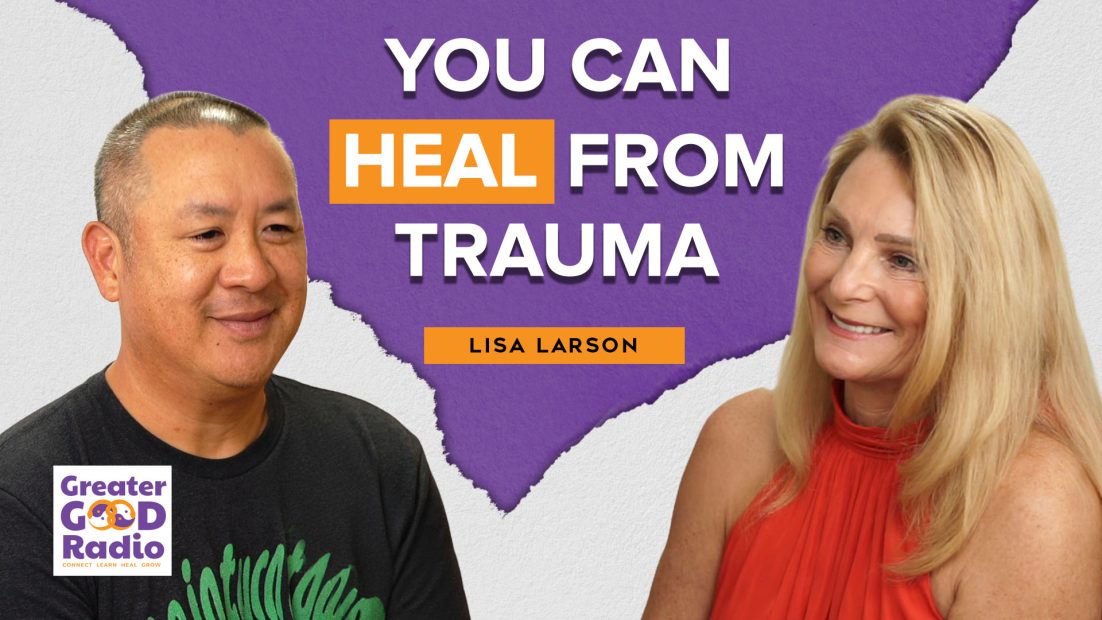Healing from Trauma with Brainspotting: Lisa Larson’s Journey
Trauma is an experience that leaves lasting imprints on the mind, body, and soul. While many believe that the effects of trauma are lifelong and inescapable, Lisa Larson’s story offers a different narrative—one of hope, healing, and transformation. Known as the “Trauma Mama,” Lisa’s journey through trauma and her discovery of Brainspotting therapy have not only changed her life but also inspired her mission to help others break free from the chains of unresolved trauma.
The Unexpected Path to Healing
Lisa Larson never imagined she would one day be a therapist specializing in trauma, let alone be known as the “Trauma Mama.” Growing up, she was in denial that her experiences could be classified as trauma. She believed she had a “great childhood” and was lucky to have avoided the severe adversities that many others faced. It wasn’t until later in life that Lisa began to realize the deep-seated impact of her past experiences.
At the age of 45, a series of life-altering events led Lisa to confront the reality of her unresolved trauma. These events triggered intense anxiety, insomnia, and other symptoms that were difficult to manage. Traditional talk therapy had been part of her journey, but it wasn’t enough to fully address the trauma stored in her body and mind.
Discovering Brainspotting
The turning point in Lisa’s journey came when she was introduced to Brainspotting, a cutting-edge therapeutic method developed by David Grand. Unlike traditional talk therapy, Brainspotting works by accessing and processing trauma stored deep within the brain. This approach allows individuals to target and heal the emotional and physical effects of trauma in a way that talk therapy often cannot reach.
For Lisa, Brainspotting was a revelation. After just a few sessions, she experienced profound shifts in her emotional state and overall well-being. The technique not only helped her manage her anxiety but also uncovered the root causes of her trauma, some of which stemmed from childhood experiences she had long forgotten or minimized.
From Patient to Practitioner
Inspired by her own healing, Lisa decided to dedicate her life to helping others overcome trauma. She trained extensively in Brainspotting and other trauma therapies, eventually opening her own trauma center. Today, she teaches clinicians how to use Brainspotting to help their clients achieve similar breakthroughs.
Lisa’s passion for trauma therapy is deeply personal. She believes that no one should have to live with the belief that trauma is a life sentence. Through her work, she educates people that healing is possible and that it is never too late to reclaim a sense of peace, safety, and self-worth.
Understanding Trauma and Brainspotting
Trauma comes in many forms—sometimes it is the result of a single, life-altering event, such as an accident or assault. Other times, it is the accumulation of smaller, chronic experiences, like neglect or emotional abuse during childhood. Regardless of its origin, trauma has a profound impact on the nervous system, often leading to symptoms like anxiety, depression, and a pervasive sense of unworthiness.
Brainspotting works by identifying points in the visual field that correlate with areas of the brain where traumatic memories are stored. By focusing on these “brain spots” while in a safe and supportive environment, individuals can process and release the emotional and physical effects of their trauma. The method is particularly effective for those who have struggled to find relief through traditional therapies.
The Power of Healing
Lisa’s story is a testament to the resilience of the human spirit and the transformative power of therapy. Her journey from denial to healing is a reminder that it is never too late to address the wounds of the past. Through Brainspotting, Lisa has found a path to peace and now guides others along the same journey.
Whether you are struggling with PTSD, anxiety, or the lingering effects of developmental trauma, Lisa’s experience offers hope. Healing is possible, and with the right support, you can break free from the patterns that have held you back.
Conclusion
Trauma may feel like a life sentence, but it doesn’t have to be. Lisa Larson’s journey shows us that healing is within reach, even after years of suffering. Through Brainspotting and other trauma-focused therapies, you too can find freedom from the pain of the past and embrace a future filled with hope and possibility.
If Lisa’s story resonates with you, consider exploring Brainspotting as a therapeutic option. Whether you are seeking to heal yourself or help others on their healing journey, this powerful method offers a path to lasting transformation.
CLICK HERE to SUBSCRIBE to our YouTube channel
Podcast: Play in new window | Download
Subscribe: Apple Podcasts | Spotify | RSS

